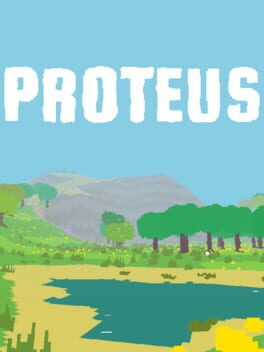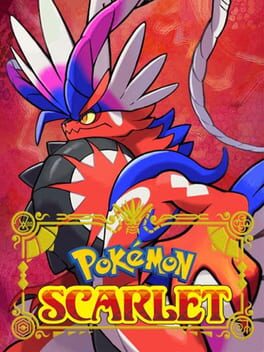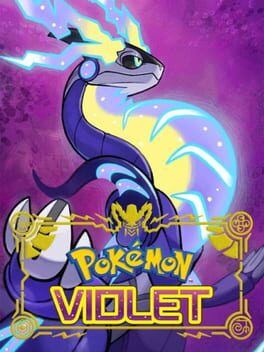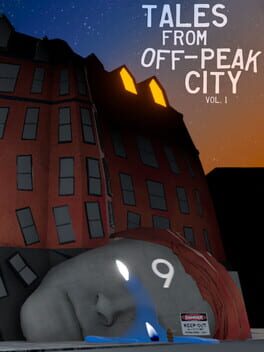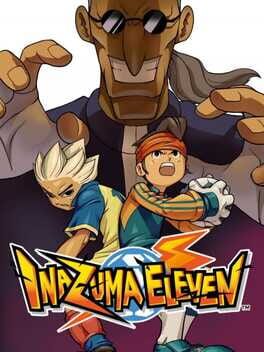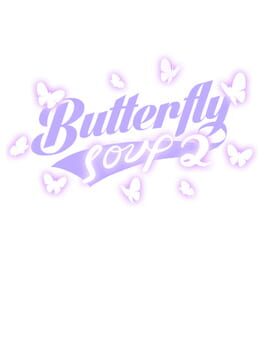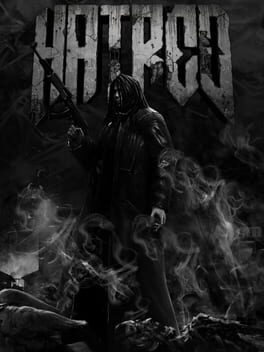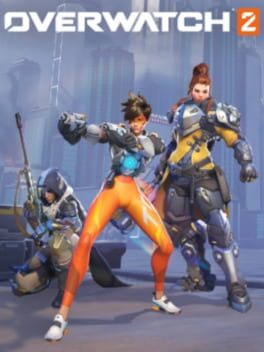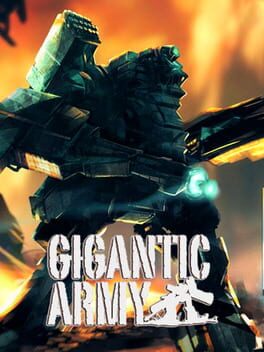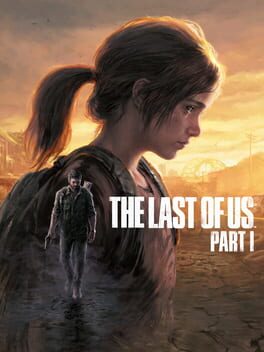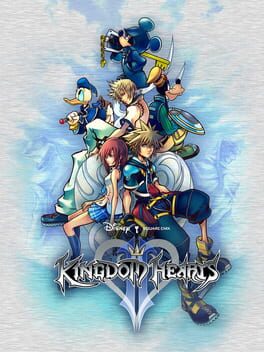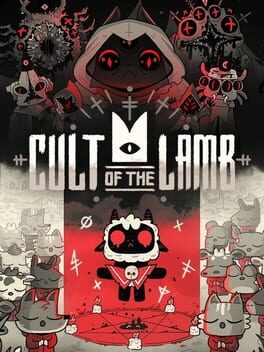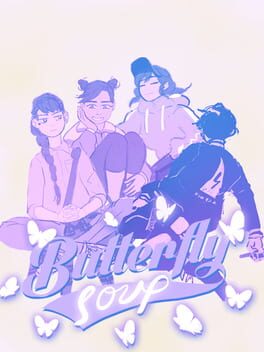55 Reviews liked by Sanchezoide
Wonder es el peor Mario de la serie principal desde, no se... Hago memoria y es que ni World, ni los Galaxy, ni Land me parecen tan malos. Los New, que ya eran una versión descafeinada de Mario 3, aun guardaban algo más de interés. El movimiento de Mario se había limado mucho pero seguía manteniendo un mínimo de peso, acelerar guardaba su inercia. En Wonder tenemos el movimiento de Mario más digital de toda la saga. En mi partida escogí a Luigi porque me daba la opción y, no se si habrá alguna diferencia con Mario, pero este no es Luigi. En Mario 2 (J), donde se introdujo por primera vez a Luigi con movimiento propio, el personaje patinaba, aceleraba más rápido y tardaba más en frenar, saltaba más alto y era más incontrolable. Luigi aquí no tiene personalidad. El movimiento de Wonder me recuerda a fangames como Super Mario Flashback. Con cosas así se puede perdonar que el que lo hace no sepa que Mario es su movimiento, porque es un proyecto fan, no tiene las mismas exigencias, etc. Aquí lo preocupante es que son de Nintendo quienes han cometido este ataque a los principios básicos del gordo italiano.
El diseño de niveles no mejora el movimiento. A caba bandera de cierre solo me venía a la cabeza: "no me creo que eso haya sido el nivel". Al poco rato de terminar el juego ya había olvidado la mayoría de ellos. Que cosa más básica, plana, sin fricción. Líneas rectas sin apenas obstáculos o enemigos. Ni siquiera se atreven a combinar más de una idea a la vez, algo básico que solían hacer estos juegos. Algunos bill balas en una sección de autoscroll, un lakitu lanzándote pinchones en una sección de plataformas móviles. Algo, lo que sea. Antes de empezar con Wonder me puse el New de Wii, porque nunca lo había jugado y para recordar el tacto de Mario. Nunca pensé que diría algo así, pero pasar de los niveles de New a estos es un abismo.
Y con los power-ups igual. En el New, uno de los nuevos power-ups que te introducen es el traje de pingüino. Tan ridículo como se ve, hace un uso interesante del movimiento de Mario, que al agacharse en carrera se desliza sobre la panza. La orografía de los niveles en los que te lo daban estaba llena de pendientes, subidas y bajadas, hielo y plataformas. Ninguna genialidad pero el mínimo para hacer disfrutable atravesarlos deslizándote. El primer power-up de Wonder es el elefante. ¿Qué aporta exactamente? ¿Se siente más pesado de controlar? ¿Es más lento o contundente? ¿Puedes, yo que se, balancearte con la trompa? Nada. La ausencia de personalidad del elefante es la misma que la de Luigi o Mario sin transformar. Ah, pero puedes dar trompazos. Enhorabuena, le has añadido un ataque cuerpo a cuerpo a Mario. Menuda revolución.
Lo de las habilidades secundarias ni lo voy a comentar, parecen sacadas de Celeste.
El principal atractivo de Wonder, la wonder-flor, que da un giro a los niveles y les aporta el toque de "locura", decir que es anecdótico sería tenerle demasiada consideración. Si te paras a analizar cada sección alternativa, ¿ofrecen algo más allá de la primera impresión? ¿Repetirías un nivel únicamente para volver a jugar esa sección en la que las tuberías suben y bajan o en la que cambia la perspectiva u otra tontería de usar y tirar? Cualquier nivel de Pizza Tower, el que sea, deja en vergüenza la wonder-flor. El ansia y velocidad con que te incitan a jugar, el ritmo de lanzarte ideas sin mayor introducción, ahora estás hecho de queso, ahora eres una armadura, ahora eres una caja de pizza y vuelas y enseguida entiendes el nuevo movimiento y navegas el nivel de otra forma y de pronto llegas al final y la música cambia y acelera y tienes que correr de vuelta a toda hostia y retrocedes a trompicones y Gustavo te mete prisa y entras en un caos a máxima velocidad... Se siente hasta injusta la comparación con Wonder.
Mario Wonder es una desgracia de juego. Es patético como Mario y una falta de saber hacer y visión preocupante. No es que esperase mucho de la Nintendo actual, pero esto me parece un nuevo nivel de bajeza. En un Mario principal, que es peor. Si fuera un Yoshi, que nadie espera nada de él pues todavía, pero en la saga insignia de Nintendo es triste y, sinceramente, me ha quitado las ganas de probar ningún juego que saque esta compañía en el futuro.
El diseño de niveles no mejora el movimiento. A caba bandera de cierre solo me venía a la cabeza: "no me creo que eso haya sido el nivel". Al poco rato de terminar el juego ya había olvidado la mayoría de ellos. Que cosa más básica, plana, sin fricción. Líneas rectas sin apenas obstáculos o enemigos. Ni siquiera se atreven a combinar más de una idea a la vez, algo básico que solían hacer estos juegos. Algunos bill balas en una sección de autoscroll, un lakitu lanzándote pinchones en una sección de plataformas móviles. Algo, lo que sea. Antes de empezar con Wonder me puse el New de Wii, porque nunca lo había jugado y para recordar el tacto de Mario. Nunca pensé que diría algo así, pero pasar de los niveles de New a estos es un abismo.
Y con los power-ups igual. En el New, uno de los nuevos power-ups que te introducen es el traje de pingüino. Tan ridículo como se ve, hace un uso interesante del movimiento de Mario, que al agacharse en carrera se desliza sobre la panza. La orografía de los niveles en los que te lo daban estaba llena de pendientes, subidas y bajadas, hielo y plataformas. Ninguna genialidad pero el mínimo para hacer disfrutable atravesarlos deslizándote. El primer power-up de Wonder es el elefante. ¿Qué aporta exactamente? ¿Se siente más pesado de controlar? ¿Es más lento o contundente? ¿Puedes, yo que se, balancearte con la trompa? Nada. La ausencia de personalidad del elefante es la misma que la de Luigi o Mario sin transformar. Ah, pero puedes dar trompazos. Enhorabuena, le has añadido un ataque cuerpo a cuerpo a Mario. Menuda revolución.
Lo de las habilidades secundarias ni lo voy a comentar, parecen sacadas de Celeste.
El principal atractivo de Wonder, la wonder-flor, que da un giro a los niveles y les aporta el toque de "locura", decir que es anecdótico sería tenerle demasiada consideración. Si te paras a analizar cada sección alternativa, ¿ofrecen algo más allá de la primera impresión? ¿Repetirías un nivel únicamente para volver a jugar esa sección en la que las tuberías suben y bajan o en la que cambia la perspectiva u otra tontería de usar y tirar? Cualquier nivel de Pizza Tower, el que sea, deja en vergüenza la wonder-flor. El ansia y velocidad con que te incitan a jugar, el ritmo de lanzarte ideas sin mayor introducción, ahora estás hecho de queso, ahora eres una armadura, ahora eres una caja de pizza y vuelas y enseguida entiendes el nuevo movimiento y navegas el nivel de otra forma y de pronto llegas al final y la música cambia y acelera y tienes que correr de vuelta a toda hostia y retrocedes a trompicones y Gustavo te mete prisa y entras en un caos a máxima velocidad... Se siente hasta injusta la comparación con Wonder.
Mario Wonder es una desgracia de juego. Es patético como Mario y una falta de saber hacer y visión preocupante. No es que esperase mucho de la Nintendo actual, pero esto me parece un nuevo nivel de bajeza. En un Mario principal, que es peor. Si fuera un Yoshi, que nadie espera nada de él pues todavía, pero en la saga insignia de Nintendo es triste y, sinceramente, me ha quitado las ganas de probar ningún juego que saque esta compañía en el futuro.
Proteus
2013
Maybe it's just my personal associations with the pixelated view of a world full of nature and my memories of the indie scene at the time, but the first impression of Proteus is reminiscent of Minecraft. Where the world importance comes from its elements and not their particular arrangement, capable of being procedurally generated, making each particular world unique and common at the same time. The major difference, all your world changing actions are taken away. What is left is one of the most important aspects in any game, and in life, to observe. Navigating through a hypersensitive world, since observation and perception are the sole focus, everything seems to carry some life.
Observing how the world changes and how perception changes the world. Getting atop a mountain when the rain comes to see the sky again, to know what time it is, look down again to see that the land has turned into the sea, descend into it and watch how the sky is now the sea. To find comfort upon finding that this world has a moon when the night comes too. Try to find a pattern in the stars, look at the land and see that the lights are mirrored below. Discover that, same as everywhere, magic appears at night.
One of the most important moments is to stand still and observe what's out of reach. How the clouds move, how the sun goes down and how the moon rises on the opposite side. Everything is the life of nature, except for the human tombstones. Because it's about opposites too. To appear on the sea facing the land where to spend the rest of your time. To do anything but escape the cycle of day and night and then seasons and then life.
If Proteus is about life, and life is about observing, the game, of course, can only end in one way. An eye getting closed.
Observing how the world changes and how perception changes the world. Getting atop a mountain when the rain comes to see the sky again, to know what time it is, look down again to see that the land has turned into the sea, descend into it and watch how the sky is now the sea. To find comfort upon finding that this world has a moon when the night comes too. Try to find a pattern in the stars, look at the land and see that the lights are mirrored below. Discover that, same as everywhere, magic appears at night.
One of the most important moments is to stand still and observe what's out of reach. How the clouds move, how the sun goes down and how the moon rises on the opposite side. Everything is the life of nature, except for the human tombstones. Because it's about opposites too. To appear on the sea facing the land where to spend the rest of your time. To do anything but escape the cycle of day and night and then seasons and then life.
If Proteus is about life, and life is about observing, the game, of course, can only end in one way. An eye getting closed.
Proteus
2013
Estoy bastante seguro de que este juego va a seguir dando que hablar en el futuro, porque aunque pertenece a una época y escena artística concretas, ha sido el que más ha logrado atravesarlas con diferencia. Presentándose como poco más que una experiencia sensorial, esta obra es la culminación de multitud de trayectorias que algunos de los mejores artistas del medio venían experimentando desde mediados de los 2000. La reacción virulenta de artistas consagrados como Yahtzee Croshaw no hacen sino confirmar hasta qué punto este juego estuvo adelantado a su tiempo. Con nada más que la contemplación como tu único punto de agarre, este juego te obliga a hacer algo tan sencillo como dejarte llevar por los sonidos y los colores, y en un mundo tan agitado y convulso como el nuestro, eso se siente más revolucionario que cincuenta Braids de simbología pretenciosa.
------------------------------------------------------
I'm pretty sure that this game will still be talked about in the future because, despite belonging to a specific era and a certain art scene, it has been one of the only ones to surpass them. Presenting itself as little more than a sensory experience, this is the culmination of a multitude of trajectories that some of the best artists in the medium had been tweaking with since the mid-2000s. The vicious revolt against that established critics, such as Yahtzee Croshaw. had over it only confirms the extent of its success. With nothing but contemplation as your only tool, this game forces you to do something as simple as let yourself be carried away by sounds and colors, and in a world as hectic and convulsive as this, that feels more revolutionary than fifty Braids loaded with pretentious symbology.
------------------------------------------------------
I'm pretty sure that this game will still be talked about in the future because, despite belonging to a specific era and a certain art scene, it has been one of the only ones to surpass them. Presenting itself as little more than a sensory experience, this is the culmination of a multitude of trajectories that some of the best artists in the medium had been tweaking with since the mid-2000s. The vicious revolt against that established critics, such as Yahtzee Croshaw. had over it only confirms the extent of its success. With nothing but contemplation as your only tool, this game forces you to do something as simple as let yourself be carried away by sounds and colors, and in a world as hectic and convulsive as this, that feels more revolutionary than fifty Braids loaded with pretentious symbology.
Pokémon Scarlet
2022
Pokémon Violet
2022
It's broken, completely broken in so many ways...the FPS is atrocious....and it's the best Pokemon game I've played in a decade. I love the characters so much and the freedom of exploring is so much fun. The designs are very different but still fun, you can tell there's a new head of art direction. Overall genuinely cool game.
Cosmo D: is simply a master of video game scenery. It reconfigures the aesthetic sense of visual collage through the architecture itself, leaving the seams that hold any video game level exposed, from textures and models to the Skybox, all mixed, with experimentation and without shame or desire to be impressive, pure architecture. digital surreal.
Nothing of coherent proportions or conventional spatial sense, something that, on the other hand, is quite common in the medium, much as contemporary AAA video games and their cinematographic and photorealistic ambitions want to deny. An observation room with a window to another room, with windows that show a landscape built like an old photograph. Representation of psyche and desire, also of memories.
- The pizza at the level of art, and the human activity of creating it at the level of any articulation and artistic practice, the result? At the delivery of each pizza, a semi-criticism between one or several characters of the piece created, with their counterpoints and their infulas written through small dialogues that float in the air of places sunk in music, full of sculptures, records, books and instruments that generate the sensation of being "bricks" to complete spaces rather than artifacts with an aesthetic and communicative function. A space so consumed by capitalism that there is no real aesthetic scale on practically anything.
100% new millennium Volatile and changing like our cultural and social dynamics.
Nothing of coherent proportions or conventional spatial sense, something that, on the other hand, is quite common in the medium, much as contemporary AAA video games and their cinematographic and photorealistic ambitions want to deny. An observation room with a window to another room, with windows that show a landscape built like an old photograph. Representation of psyche and desire, also of memories.
- The pizza at the level of art, and the human activity of creating it at the level of any articulation and artistic practice, the result? At the delivery of each pizza, a semi-criticism between one or several characters of the piece created, with their counterpoints and their infulas written through small dialogues that float in the air of places sunk in music, full of sculptures, records, books and instruments that generate the sensation of being "bricks" to complete spaces rather than artifacts with an aesthetic and communicative function. A space so consumed by capitalism that there is no real aesthetic scale on practically anything.
100% new millennium Volatile and changing like our cultural and social dynamics.
Inazuma Eleven
2008
Inazuma Eleven es un juego hipócrita. Mark Evans se empeña en repetir que el fútbol es lo más importante pero cuesta creer sus palabras. A Inazuma Eleven le da igual el fútbol.
En Inazuma Eleven no entienden de asistencias ni de centros, no conocen la emoción de un corner, una falta directa o un penalti. Inazuma Eleven solo entiende de ataques especiales (técnicas), combates aleatorios (pachangas), mazmorras y cofres. Inazuma Eleven es un jrpg con pintura de fútbol como podría tener pintura de cualquier otra cosa. Inazuma Eleven ni siquiera entiende lo más importante de cualquier deporte: la incertidumbre de no saber quién se llevará la victoria. Todo sigue su narrativa de anime y ganar el partido es lo que se da por supuesto salvo que el guión diga lo contrario.
¿Cómo puede ser el fútbol, según Mark Evans, lo más importante, lo que traspasa diferencias y vence problemas externos, lo que une a las personas como iguales y saca lo mejor de cada uno cuando se juega por el equipo y la victoria? Inazuma Eleven no cree nada de esto. Es un juego hipócrita y el fútbol es una palabra vacía para sus autores. Cualquier segundo de un Betis-Sevilla tiene más corazón que toda esta saga de juegos.
En Inazuma Eleven no entienden de asistencias ni de centros, no conocen la emoción de un corner, una falta directa o un penalti. Inazuma Eleven solo entiende de ataques especiales (técnicas), combates aleatorios (pachangas), mazmorras y cofres. Inazuma Eleven es un jrpg con pintura de fútbol como podría tener pintura de cualquier otra cosa. Inazuma Eleven ni siquiera entiende lo más importante de cualquier deporte: la incertidumbre de no saber quién se llevará la victoria. Todo sigue su narrativa de anime y ganar el partido es lo que se da por supuesto salvo que el guión diga lo contrario.
¿Cómo puede ser el fútbol, según Mark Evans, lo más importante, lo que traspasa diferencias y vence problemas externos, lo que une a las personas como iguales y saca lo mejor de cada uno cuando se juega por el equipo y la victoria? Inazuma Eleven no cree nada de esto. Es un juego hipócrita y el fútbol es una palabra vacía para sus autores. Cualquier segundo de un Betis-Sevilla tiene más corazón que toda esta saga de juegos.
Butterfly Soup 2
2022
Briana Lei and her first Butterfly Soup are part of the wave of "video games that do not love our time, but the people who live in it"
It is a very difficult pill for me to swallow because this year I was expecting a lot of games that have not gone beyond remarkable, but I find it hard to believe that the one I like the least is a surprise game by Briana Lei, but of course, in hindsight, it was already clear that it would be like this. The first BP articulated a teenage fantasy where the only normative thing was its VN format and semi-anime Tumblr visuals. It was an incisive political story that almost openly framed the new generations raised in the 2000s-both in the good and in the bad-and how they lived a full adolescence in our modern turbo-capitalist world, whose foundations have been built with such eagerness that it seems There will be no room for drastic sociopolitical change that maintains and ensures equity for people. Demonstrations against homosexual marriage, situations where multiculturalism, disappointment and paternalism towards a generation trapped in an unequal system... And in the center a group of girls of varied ethnicity trying to live. everything else needs a solution, but it's in the background, because in the chaos, these girls have the right to live, we all do.
It's perfect, no need for a sequel. The important thing was the girls, yes, but their situation in the world, not so much the laughing breezy dialogues.
BS2 has a lot of heart, but it succumbs to the "improve and expand" preconceptions and thereby becomes something worse than a compliant sequel: A deal.
Expand, continuing a story, and improve by emphasizing personalities to moments of exaggeration.
You play, I tuck you in. You know this, take more of it.
It tries to pay REAL attention, and point out the social causes that didn't have as much depth in the first game as
The exploration of gender and sexuality, racism, the complexity of family relationships... But the truth is that all this was already in the first game, it was not underlined, but its presence crossed the entire work like a lightning bolt. It was not heard clearly, but it had an impact after the fact.
The pandemic has changed the world for the worse if possible for some, we go two steps forward and one step back. It's still a step forward, but still.
We can't let social and moral causes become fictional genres, not even Briana Lei, because this is what has happened in BS2.
I wanted to write more things, but it's getting difficult for me.
Bye bye, Butterlfy
It is a very difficult pill for me to swallow because this year I was expecting a lot of games that have not gone beyond remarkable, but I find it hard to believe that the one I like the least is a surprise game by Briana Lei, but of course, in hindsight, it was already clear that it would be like this. The first BP articulated a teenage fantasy where the only normative thing was its VN format and semi-anime Tumblr visuals. It was an incisive political story that almost openly framed the new generations raised in the 2000s-both in the good and in the bad-and how they lived a full adolescence in our modern turbo-capitalist world, whose foundations have been built with such eagerness that it seems There will be no room for drastic sociopolitical change that maintains and ensures equity for people. Demonstrations against homosexual marriage, situations where multiculturalism, disappointment and paternalism towards a generation trapped in an unequal system... And in the center a group of girls of varied ethnicity trying to live. everything else needs a solution, but it's in the background, because in the chaos, these girls have the right to live, we all do.
It's perfect, no need for a sequel. The important thing was the girls, yes, but their situation in the world, not so much the laughing breezy dialogues.
BS2 has a lot of heart, but it succumbs to the "improve and expand" preconceptions and thereby becomes something worse than a compliant sequel: A deal.
Expand, continuing a story, and improve by emphasizing personalities to moments of exaggeration.
You play, I tuck you in. You know this, take more of it.
It tries to pay REAL attention, and point out the social causes that didn't have as much depth in the first game as
The exploration of gender and sexuality, racism, the complexity of family relationships... But the truth is that all this was already in the first game, it was not underlined, but its presence crossed the entire work like a lightning bolt. It was not heard clearly, but it had an impact after the fact.
The pandemic has changed the world for the worse if possible for some, we go two steps forward and one step back. It's still a step forward, but still.
We can't let social and moral causes become fictional genres, not even Briana Lei, because this is what has happened in BS2.
I wanted to write more things, but it's getting difficult for me.
Bye bye, Butterlfy
Hatred
2015
A thought that has entered my head.
I don't know the state of "wholesome" in video games, but from what little I got into it, for me most opinologists failed at the point that they pointed to gamified mundane activities (of which I am a moderate fan) as a response to violence, being in reality many of these activities, such as fishing or cutting down trees, could be interpreted as a form of ecological violence without
"Enemies". This is how they usually present the digital entities that we face. But we are not "enemies" in games that do not contextualize terraforming or indiscriminate exploitation of resources? Bending the Minecraft and Animal Crossing regions is fine, but the Hatred neighborhood is wrong?
Video games separate people, individuals.
I am more inclined towards the creation or presentation of physical conflict through sports, preferably fictitious, but hey.
Video game creators shouldn't fear violence. Its exploration in fictional contexts is important, in all its facets and perspectives, and few media are better than the video game to do so. It doesn't matter if they are explorations of violence and recreation of conflict in a loop like in the Taroverse, or action works that explore identity and personal emptiness through stylization and hunting as a way of life, like Itsuno's Devil May Cry .
Hatred and the original Postal do their thing in a not so different way because they are a kind of horror games that do not deal with the subject of violence in a standard way, they do not offer the stereotypical heroic fantasy or resemble the examples of before, no evocative, but they are honest, they present violence as a grotesque activity in a neighborhood with a Dollhouse aesthetic (also Nier Repliant did) and they expose something that, although it needs an appropriate and convincing contextualization, is very real: violence is something easy to exercise , in almost all its forms, and in video games it's something we just do because it's satisfying. Already, there are a few pop video games that reflect on this (Taroverse, SpO: The line, Max Payne 3, bioshock...) but they usually need context or even a bait to bite so that we enter their conversation without feeling offended, for what? Why is MWII acceptable ("acceptable") until it puts us in terrorist control very explicitly? There was some controversy there, but not so much that in every TD game anyone can be a terrorist? Is it okay to play practically the same as Hatred in The Last of us part II just because that game has a -poor- excuse to contextualize scenes of extreme photorealistic ultragraphic violence? And come on, TLoU2 has no real intention of making us uncomfortable.
At least not much more than the intention of offering a satisfying time through fairly well-constructed action. But, again, Far Cry 3? 60% of the games? I don't know, a study on it would be interesting. As long as it doesn't have something like Under the skin as a scale for when you try to put the player in the skin of the antagonist or monster, but, hey.
-------------------------------------------------- -------------------------------------------------- -----
It's weird, this violence thing reminds me a bit of what was said about "this game makes you feel like batman/spiderman/superhero" and I was like: "Bro, almost all games make you feel like a superhero without a cape"
-------------------------------------------------- -------------------------------------------------- -----
__
KANE & LYNCH 2:
BEST GAME
WESTERN SPREADING CHAOS IN SHANGHAI, THE DIGITAL IMAGE PORTRAITS THE EAST AS A PLAYING FIELD. awful everything. play it
Arduween 1x09
I don't know the state of "wholesome" in video games, but from what little I got into it, for me most opinologists failed at the point that they pointed to gamified mundane activities (of which I am a moderate fan) as a response to violence, being in reality many of these activities, such as fishing or cutting down trees, could be interpreted as a form of ecological violence without
"Enemies". This is how they usually present the digital entities that we face. But we are not "enemies" in games that do not contextualize terraforming or indiscriminate exploitation of resources? Bending the Minecraft and Animal Crossing regions is fine, but the Hatred neighborhood is wrong?
Video games separate people, individuals.
I am more inclined towards the creation or presentation of physical conflict through sports, preferably fictitious, but hey.
Video game creators shouldn't fear violence. Its exploration in fictional contexts is important, in all its facets and perspectives, and few media are better than the video game to do so. It doesn't matter if they are explorations of violence and recreation of conflict in a loop like in the Taroverse, or action works that explore identity and personal emptiness through stylization and hunting as a way of life, like Itsuno's Devil May Cry .
Hatred and the original Postal do their thing in a not so different way because they are a kind of horror games that do not deal with the subject of violence in a standard way, they do not offer the stereotypical heroic fantasy or resemble the examples of before, no evocative, but they are honest, they present violence as a grotesque activity in a neighborhood with a Dollhouse aesthetic (also Nier Repliant did) and they expose something that, although it needs an appropriate and convincing contextualization, is very real: violence is something easy to exercise , in almost all its forms, and in video games it's something we just do because it's satisfying. Already, there are a few pop video games that reflect on this (Taroverse, SpO: The line, Max Payne 3, bioshock...) but they usually need context or even a bait to bite so that we enter their conversation without feeling offended, for what? Why is MWII acceptable ("acceptable") until it puts us in terrorist control very explicitly? There was some controversy there, but not so much that in every TD game anyone can be a terrorist? Is it okay to play practically the same as Hatred in The Last of us part II just because that game has a -poor- excuse to contextualize scenes of extreme photorealistic ultragraphic violence? And come on, TLoU2 has no real intention of making us uncomfortable.
At least not much more than the intention of offering a satisfying time through fairly well-constructed action. But, again, Far Cry 3? 60% of the games? I don't know, a study on it would be interesting. As long as it doesn't have something like Under the skin as a scale for when you try to put the player in the skin of the antagonist or monster, but, hey.
-------------------------------------------------- -------------------------------------------------- -----
It's weird, this violence thing reminds me a bit of what was said about "this game makes you feel like batman/spiderman/superhero" and I was like: "Bro, almost all games make you feel like a superhero without a cape"
-------------------------------------------------- -------------------------------------------------- -----
__
KANE & LYNCH 2:
BEST GAME
WESTERN SPREADING CHAOS IN SHANGHAI, THE DIGITAL IMAGE PORTRAITS THE EAST AS A PLAYING FIELD. awful everything. play it
Arduween 1x09
Overwatch 2
2022
Gigantic Army
2010
Un juego tan pesado que acabas agotado físicamente. Es un "run" n' gun donde avanzar en línea recta se siente como remontar un río y dar un salto, como jugar a un Yoshi's Island hecho de hormigón. Toda acción cuesta tiempo y esfuerzo cuando controlas una armadura de combate superpesada. Andar cuesta, apuntar cuesta, saltar y propulsarte con el jetpack cuesta y hasta reponerte al caer pesadamente contra suelo cuesta valiosos segundos. En un juego de acción donde todo requiere tanta inversión, toca pensar rápido y pensar bien lo que quieres hacer en cada momento. Llega el punto en el que la armadura se vuelve una segunda piel y empiezas a calcular distancias y a esquivar proyectiles por pura intuición como si no estuvieras moviendo un avatar de toneladas de peso.
Los enemigos están al nivel de nuestra armadura de combate, golpean duro y siempre nos superan en número, y la progresión pantalla a pantalla consigue mantener un buen ritmo hasta terminar cuando tiene que terminar. Lo más negativo, lo deshumanizado que está todo. El contexto a la acción se da en una entrada de texto monótona antes de cada misión y entre una y otra hay incluso elipsis de varios años. Se echa en falta un marco más de aventura y menos "realista" y militarizado en un juego que es, en definitiva, muy arcade. No pediría interrumpir la acción con diálogos constantes como hacía su referente, Assault Suit Leynos, pero un acercamiento menos impersonal y una progresión más narrativa ayudarían a implicar al jugador con un mecha más próximo a un héroe de acción y menos a una herramienta militar.
Los enemigos están al nivel de nuestra armadura de combate, golpean duro y siempre nos superan en número, y la progresión pantalla a pantalla consigue mantener un buen ritmo hasta terminar cuando tiene que terminar. Lo más negativo, lo deshumanizado que está todo. El contexto a la acción se da en una entrada de texto monótona antes de cada misión y entre una y otra hay incluso elipsis de varios años. Se echa en falta un marco más de aventura y menos "realista" y militarizado en un juego que es, en definitiva, muy arcade. No pediría interrumpir la acción con diálogos constantes como hacía su referente, Assault Suit Leynos, pero un acercamiento menos impersonal y una progresión más narrativa ayudarían a implicar al jugador con un mecha más próximo a un héroe de acción y menos a una herramienta militar.
Those who see art as a shortcut to prestige have a very distorted idea of what is "prestigious" - Look Kojima, creating spiritual connections through eschatology, total genius -, And few of this horrible ilk exist like Neil druckmann or conrad roset. Guys who use the medium of video games as a platform to satisfy their hunger for prominence and recognition. and incidentally, along the way, dividing in a problematic way the reception and conception of "arthouse" and pop games
I'm not going to blame them for Little Nightmares being read as an empty and morbid trip, because before that there was Playdead with his Limbo.
Neither of the obsession with the tone and fixation with photorealism without a plastic sense more typical than seeing the pores of Nathan Drake's skin, but, God, how I would like a timeline in which Roset and Druckmann are considered the worst in a way unanimous. Because they may not be the worst in general in the horror pile, but their popularity exposes the sad reality that some are interested in video games being validated by those who do not appreciate them in all their aspects, and those who need them to carry an HBO series cosplay or Milanese exhibition box
____________________
the idea of how necessary any author was -beyond programmers- in videogames came to me for the first time playing Dragon Quarter "the shape of this game does not seem to be the product of chance or trends" said little Ardu at one time where he assumed that experimentation was the standard and the methodology to follow, the correct choice. Poor ignorant little Ardu.
In 2013 Little Ardu also said: "In the same year as Attack of the friday monsters, Drakengard 3, TW101, Proteus and Resogun... There is The Last of Us, this game that has enchanted me for its solidity and surprising humanity ( little Ardu didn't see that coming) but it's also the pinnacle of the formally conservative tv prestige show wannabe game type, which seems to be the way forward for pop games. mmmm maybe it's not that bad either? I mean it has overlapped many games that I consider better, but that always happens to me haha if one day justice will be done, but meanwhile, if the AAA are like that, maybe we will advance something "
Poor ignorant little Ardu.
I'm not going to blame them for Little Nightmares being read as an empty and morbid trip, because before that there was Playdead with his Limbo.
Neither of the obsession with the tone and fixation with photorealism without a plastic sense more typical than seeing the pores of Nathan Drake's skin, but, God, how I would like a timeline in which Roset and Druckmann are considered the worst in a way unanimous. Because they may not be the worst in general in the horror pile, but their popularity exposes the sad reality that some are interested in video games being validated by those who do not appreciate them in all their aspects, and those who need them to carry an HBO series cosplay or Milanese exhibition box
____________________
the idea of how necessary any author was -beyond programmers- in videogames came to me for the first time playing Dragon Quarter "the shape of this game does not seem to be the product of chance or trends" said little Ardu at one time where he assumed that experimentation was the standard and the methodology to follow, the correct choice. Poor ignorant little Ardu.
In 2013 Little Ardu also said: "In the same year as Attack of the friday monsters, Drakengard 3, TW101, Proteus and Resogun... There is The Last of Us, this game that has enchanted me for its solidity and surprising humanity ( little Ardu didn't see that coming) but it's also the pinnacle of the formally conservative tv prestige show wannabe game type, which seems to be the way forward for pop games. mmmm maybe it's not that bad either? I mean it has overlapped many games that I consider better, but that always happens to me haha if one day justice will be done, but meanwhile, if the AAA are like that, maybe we will advance something "
Poor ignorant little Ardu.
Kingdom Hearts II
2005
Cult of the Lamb
2022
Cult of the Lamb is very shallow and devoid of content, but the devs perfected the art of the streamerbait.
The game looks and sounds amazing, and presents the whole gameplay loop within the first hour, so if you catch a glimpse of the game on someone's stream, you will probably think "oh damn, this is really cool" and go to buy it.
If you haven't played any games in either the roguelite genre (The Binding of Isaac, Hades, Enter the Gungeon, etc) or the colony management sim genre (Dwarf Fortress, Rimworld, Oxygen not Included, etc) you might even have some fun playing it. Otherwise though you'll quickly notice there's nothing more to what you already saw on stream, and that the game doesn't live up to the level of an average game in either of those genres.
I've beaten the entirety of it in about 10 hours; the colony management is primitive and about 5-6 hours into the game my cult started playing itself with the only remaining duties being cooking and preaching, and after that I just rushed through the dungeons, of which there are only 4, all of them functionally identical. It's possible to repeat those dungeons after defeating the corresponding big boss, but outside of a tat one of the NPCs dispenses for completing the repeat dungeon for the first time, there is no point to it - they play exactly the same except you can loop 3 times through them to collect more rewards in one go (the rewards are completely meaningless by that point, because the cult will already be developed enough to maintain itself).
The combat itself is completely broken - rolling towards the enemy, striking once and rolling away by far outperforms any other tactic you can come up with, and there is pressure to avoid fooling around too much with suboptimal tactics because of the global timer which means that the cult's stats will diminish even during the dungeon time.
The enemies are copypasted from TBoI, and the bosses are just the same enemies, but bigger and with the ability to spawn smaller enemies. The only boss with the actual patterns is the final boss, and he's laughably easy, some bosses from the early floors of the aforementioned TBoI are more difficult to beat than the final boss in this game.
There are curses which act like the active items, but there's no interesting utility to them, just outputting a bit more damage.
There are tarot cards which act like the passive items, but they can be roughly divided into the two categories: minor buff to health/damage and an extremely circumstantional benefit you will never fulfill the conditions for.
I wrote a lot about the dungeon part of the game even though I think it's meant to be secondary for the colony management part.
This is because there's not much to say about the colony management part.
Followers have basic needs: hunger and hygiene, and they generate devotion. You build structures to satisfy those two needs, and structures to farm materials to build structures to satisfy those two needs. You use devotion to unlock more structures to... you get the idea. You can also preach once a day to make your followers generate cooler devotion which you use to unlock completely unsubstantial upgrades for the dungeon part. The followers level up which does pretty much nothing other than eventually allowing you to unlock perks for the cult none of which are particularly transformative.
It's all functional and completely boring, the only paradigm shift that happens in this part of the game is that eventually it loops onto itself and the cult generates enough materials which the followers use to satisfy their needs without any input on the part of the player (with the exception of cooking, and apparently the chef was on one of the promo screenshots, so I'm guessing they either removed this to put in a DLC later, it was too buggy to put in the game, or they realised that the player will literally have nothing to do at the cult anymore except preaching if the chef is present)
This shallowness, however, makes the game very approachable, and the target audience for the game, I think, is pretty clear. There is a lot of effort put into the visuals, the sound, and the Twitch integration, and seemingly a lot of money put into sponsoring the streamers to play it. The game allows you to pet a dog to tick off that meme "can you pet a dog in this game" twitter account box. The game has a fishing minigame to tick off that meme "does this game have a fishing minigame" twitter account box. When you finish the game, before the credits roll the game makes sure to plead you to recommend the game to the others.
At the end of this review I will instead recommend playing Oxygen not Included for the better colony management sim experience, and Hades for the better roguelite experience. They're just as polished as Cult of the Lamb visually and acoustically, but also are much better designed games.
The game looks and sounds amazing, and presents the whole gameplay loop within the first hour, so if you catch a glimpse of the game on someone's stream, you will probably think "oh damn, this is really cool" and go to buy it.
If you haven't played any games in either the roguelite genre (The Binding of Isaac, Hades, Enter the Gungeon, etc) or the colony management sim genre (Dwarf Fortress, Rimworld, Oxygen not Included, etc) you might even have some fun playing it. Otherwise though you'll quickly notice there's nothing more to what you already saw on stream, and that the game doesn't live up to the level of an average game in either of those genres.
I've beaten the entirety of it in about 10 hours; the colony management is primitive and about 5-6 hours into the game my cult started playing itself with the only remaining duties being cooking and preaching, and after that I just rushed through the dungeons, of which there are only 4, all of them functionally identical. It's possible to repeat those dungeons after defeating the corresponding big boss, but outside of a tat one of the NPCs dispenses for completing the repeat dungeon for the first time, there is no point to it - they play exactly the same except you can loop 3 times through them to collect more rewards in one go (the rewards are completely meaningless by that point, because the cult will already be developed enough to maintain itself).
The combat itself is completely broken - rolling towards the enemy, striking once and rolling away by far outperforms any other tactic you can come up with, and there is pressure to avoid fooling around too much with suboptimal tactics because of the global timer which means that the cult's stats will diminish even during the dungeon time.
The enemies are copypasted from TBoI, and the bosses are just the same enemies, but bigger and with the ability to spawn smaller enemies. The only boss with the actual patterns is the final boss, and he's laughably easy, some bosses from the early floors of the aforementioned TBoI are more difficult to beat than the final boss in this game.
There are curses which act like the active items, but there's no interesting utility to them, just outputting a bit more damage.
There are tarot cards which act like the passive items, but they can be roughly divided into the two categories: minor buff to health/damage and an extremely circumstantional benefit you will never fulfill the conditions for.
I wrote a lot about the dungeon part of the game even though I think it's meant to be secondary for the colony management part.
This is because there's not much to say about the colony management part.
Followers have basic needs: hunger and hygiene, and they generate devotion. You build structures to satisfy those two needs, and structures to farm materials to build structures to satisfy those two needs. You use devotion to unlock more structures to... you get the idea. You can also preach once a day to make your followers generate cooler devotion which you use to unlock completely unsubstantial upgrades for the dungeon part. The followers level up which does pretty much nothing other than eventually allowing you to unlock perks for the cult none of which are particularly transformative.
It's all functional and completely boring, the only paradigm shift that happens in this part of the game is that eventually it loops onto itself and the cult generates enough materials which the followers use to satisfy their needs without any input on the part of the player (with the exception of cooking, and apparently the chef was on one of the promo screenshots, so I'm guessing they either removed this to put in a DLC later, it was too buggy to put in the game, or they realised that the player will literally have nothing to do at the cult anymore except preaching if the chef is present)
This shallowness, however, makes the game very approachable, and the target audience for the game, I think, is pretty clear. There is a lot of effort put into the visuals, the sound, and the Twitch integration, and seemingly a lot of money put into sponsoring the streamers to play it. The game allows you to pet a dog to tick off that meme "can you pet a dog in this game" twitter account box. The game has a fishing minigame to tick off that meme "does this game have a fishing minigame" twitter account box. When you finish the game, before the credits roll the game makes sure to plead you to recommend the game to the others.
At the end of this review I will instead recommend playing Oxygen not Included for the better colony management sim experience, and Hades for the better roguelite experience. They're just as polished as Cult of the Lamb visually and acoustically, but also are much better designed games.
Butterfly Soup
2017
It’s nice to see Butterfly Soup high school nostalgic tale not because it’s more or less accurate (who knows) but because it believes in a teenage ideal where being yourself is accepted and received with love. It’s a letter of hope. Even if the world opposes you, even if your parents oppose you, you can find that group of friends that will understand you. The ideal of Butterfly Soup is not one where all hardships around you magically disappear, but one where the rebellious spirit of Min (and everyone else) is worth fighting for. It’s worth fighting for your truth, for what’s right, it’s worth to be dumb and straightforward and to hear your heart. If made up rules don’t fit who you are, jump over them. Your life’s always ahead and being yourself is a risk you should always take.

